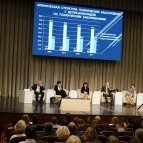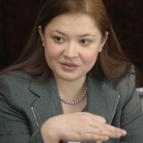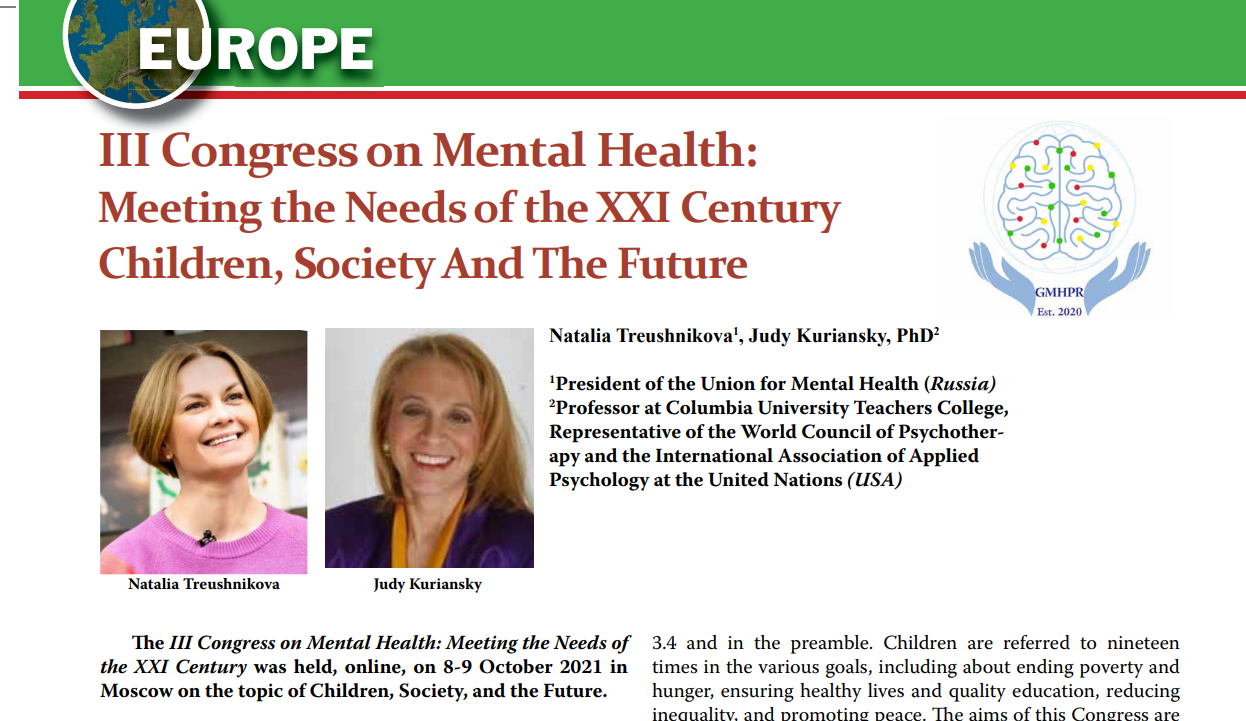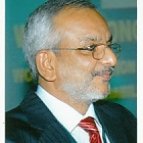Prof. Dr. Ganesh Shankar, President of the World Council for psychotherapy (Asian Chapter), Hon. Gen. Secretary of Yoga&Psychotherapy Association, with Welcome words to the I World Congress
Prof. Dr. Ganesh Shankar, President of the World Council for psychotherapy (Asian Chapter), Founder President of the Asian Federation for Psychotherapy (AFP), Hon. Gen. Secretary of Yoga&Psychotherapy Association of India, Professor and Head- Yoga Psychotherapy, School of Educational Studies, Sagar University, Sagar-M.P. (India), Former Dean of School of Education, Dr. Harisingh Gour Central University, Sagar (Madhya Pradesh), Former Director, Central Council for Research in Yoga& Naturopathy in the Ministry of Health, Government of India, Ph.D, D.Litt. (Yoga Psychotherapy), Qualified Yoga Psychotherapist (WCP) addressed welcome words to the I World Congress on Mental Health: Meeting the Needs of the XXI Century.

“The effectiveness and coherence of this interdisciplinary work will largely determine the present and the future of the young generation of the world. The pace of life in today’s world is accelerating, the everlasting values are being questioned, the value of the basic social institutions is being leveled under the influence of global processes, uncontrolled information flows and technical progress.
Mental disorders have been described as one of the most devastating disorders of mankind. To tackle these problems, holistic approach of Yoga and other spiritual sciences which targets five levels of existence (Pancha Kosas – i.e., physical, (Prana or) subtle energies, mental and intellectual levels), will specifically help persons with mental illness in at least five ways:
Calming effect: The more agitated a person is, the more difficult they find it to practice yoga and to relax. However, with more physical practices as Asanas, breathing practices and Kriyas (cleansing techniques as kapalabhati, Trataka, Neti, etc.) most patients with mental illness will be able to benefit by reducing the agitations they feel.
Increasing awareness: Yoga practice increases awareness of oneself and of ones’ surroundings. As a patient begins to be aware of the most basic physical sensations as heartbeat, pulse, etc., it becomes easier to suggest increasing the scope of awareness to include awareness of the surroundings and of other people.
Increasing the attention span: One of the reasons why it is very difficult for a mentally ill-patient to return to work even after the acute phase is because of the markedly reduced attention span and easy distractibility. A short attention span and the tendency to be easily distracted, make it very difficult for a schizophrenia patient to see any task through to completion, successfully. By practicing yoga, a patient may be able to maintain a state of focused attention with greater ease and for longer periods.
Acceptance and adaptability: One of the challenges for rehabilitation of persons with mental illness is that even if they are adequately rehabilitated in their homes, the environment there is often so unhealthy that they get a relapse. Certain ideas of acceptance and adaptability, which are part of yoga counseling, help the subjects to make a good transition from the therapy center to the world outside.
A sense of security: Bhakti yoga or indeed any form of devotion and surrender to a supreme entity or a role model of a person will be of great source of strength to a “recovered” patient (i.e., a person who, through medication, no longer has symptoms such as hallucinations, delusions, or bizarre behavior, in general). Very often, during the course of a long and difficult illness a patient may lose contact with his family. For a recovered patient this lack of support may give rise to feelings of insecurity, reduce the chances of further improvement and even bring about a relapse. This is where a sense of bhakti or devotion and surrender to a supreme or ideal being may give the person an anchor with a feeling of reassurance and of security.
We hope that the I World Congress on Mental Health: Meeting the Needs of the XXI Century will be a leading global discussion platform for international experts from various fields – health, science and education, yoga & spirituality arts and culture, law and economics, social welfare, media, sport and fitness, social and business circles – where they can share experiences, offer innovative problem-solving”.
Please visit the I World Congress’s website to access online registration for the congress program, including detailed information and registration options:www.mental-health-congress.ru/en/









